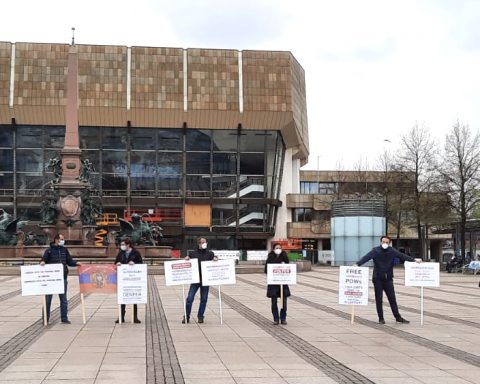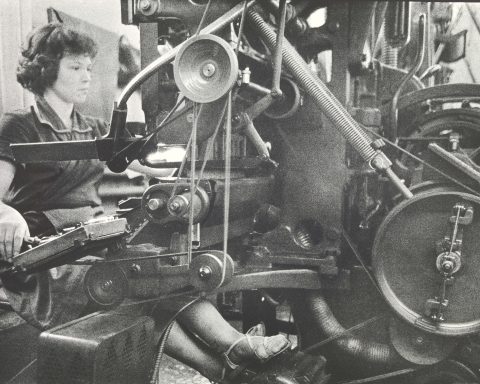The migration crisis resulting from the collapse of Venezuela’s economy has put the country on the brink of a humanitarian crisis. It’s the third biggest of such crises worldwide, only behind Syria’s civil war and Myanmar’s cleansing of the Rohingya Muslim minority.
In the last two years, about 3 million Venezuelans have left the country. This brings the number of the Venezuelan diaspora to between 4 and 5 million. To put this into perspective, just over a million Venezuelans lived abroad before 2016.
There is a big difference in the patterns of migration of the last couple of years out of Venezuela. Unlike years past – when mostly highly educated or well-off citizens went to North America and Europe in search of better salaries and to escape Venezuela’s ridiculously high murder and crime rate – low-skilled and low-income Venezuelans are now the ones tending to flee to neighboring Latin American countries.
Colombia, Venezuela’s only Spanish-speaking next-door neighbor, bears the brunt of the regional migration chaos. Most Venezuelan immigrants cross by land through the busy border town of Cucuta.
Colombia is for Venezuelans what Germany is for Syrians
In Germany, there are about 600,000 Syrians. As of last December, over half a million Venezuelans had migrated to Colombia, a figure probably higher now.
Many Venezuelans cross into Cucuta to buy food and medicines, and then go back to Venezuela. Many others use Colombia as the entryway to the rest of Latin America; they move by bus to other countries, which is a much cheaper (though uncomfortable) means of transportation in the region.
Ecuador, Peru and Argentina are favored destinations of Venezuelans migrating to escape the economic crisis. These countries can process work permits with only basic paperwork, like passports. Additionally, there is the lack of a language barrier, since all these countries are Spanish-speaking.
At the same time, the dramatic rise in Venezuelan refugees has sparked xenophobic sentiments against them in many fellow Latin American countries. Unfortunately, large migration waves often set off rampant discrimination, as has been the case with the large inflow of Syrian refugees into Germany.
The causes of the least talked about migration crisis
The Venezuelan migration crisis has drawn little attention in comparison with the Syrian and Rohingya crises, likely due to two reasons.
First, the Hugo Chavez regime and that of his successor, Nicolas Maduro, have been darlings of leftist regimes and political parties that refuse to criticize the Venezuelan government. They likely fear that doing so would open a debate on the merits of socialism.
Second, the Venezuelan crisis, unlike that of Syria or Myanmar, is not the result of an armed conflict (be it civil war or ethnic cleansing). Rather, it is the purposeful mismanagement of the national economy that has slowly destroyed Venezuela’s productive capacity, or the capacity to import goods.
The result is that people are going hungry. There is little foodstuff that low-income people can acquire, which is a strong reason for them to go and seek refuge in other Latin American countries.
As Venezuelan-born Harvard economist Ricardo Hausmann recently said, the roots of the current economic chaos in his home country are political. During the Chavez years in the 2000s, the Venezuelan government gradually did away with property rights and checks and balances, which allowed it to replace productive elites in both the public and private sectors. Conditioning this move, however, was the oil price boom of that decade, which was over 100 US$ at times.
Chavez and his policymakers believed that the oil bonanza would last forever. Now we know that this was not true.
Global oil prices collapsed in 2014 due to new players in the energy sector, such as fracking in the United States. They flooded the market with oil, which made the commodity’s global price crumble to less than 50 US$.
Without oil money, Venezuela’s scotch-marinated party ended
Venezuelan economist Juan Nagel has brilliantly captured the essence of the good years under Hugo Chavez. He described Caracas, in a year like 2007 or 2008, as:
One giant SUV-ed, breast-implanted, eighteen-year-old-scotch marinated party.
This was due to the fact that the militarist Chavez government slowly replaced the country’s capacity to produce things like grains, cheese and meat (sorry vegans, it’s Latin America) with imports paid for by oil money.
An important economic mechanism that destroyed Venezuela’s productive capacity was exchange controls. This basically meant that the government had to approve all currency conversions from bolivares (the local currency) to dollars or euros. Through this, the government made the exchange rate of bolivares artificially cheap by pegging the bolivar to the dollar at a ridiculously low rate.
Translation: The bolivares bought a lot more than they should have.

Exchange controls were Chavez’s political wonder weapon to appease society. By making the bolivar cheap, imports were cheap. This satisfied all social classes.
Low-income families cheaply purchased foodstuffs at state-run supermarkets that boasted products bought with appreciated currency. Middle-income families could travel abroad and buy several bottles of scotch every week, and buy Toyota SUVs. If you had government contacts, you could get access to dollars at the controlled exchange rates and sell them in the black market, which bought you a ticket to Venezuela’s high-income class!
The dollars sold by the government through exchange controls came from oil revenues. Hence, the entire economy – and thus the “scotch-marinated party” that ensured Chavez’s popularity and back-to-back electoral successes – depended on oil money.
With the price of oil half what it was several years ago, along with dwindling oil production, the party is over. The military has taken control of what remains of the economy by taking over the state oil company. But the same economic policies (such as the exchange controls) remain in place, as the government fears that liberalization will strengthen Venezuela’s opposition parties. The latter is something that Dictator Maduro is keen on preventing.
All this means that, unfortunately, the Venezuelan economic catastrophe will not end anytime soon.
It would require regime change, or at least someone like liberal military dictator Lee Kuan Yew, to implement badly needed reforms that would revamp the country’s economic capacity. I would not count on any of the two happening.
Therefore, the Venezuelan migration crisis is also likely to continue for the foreseeable future.










